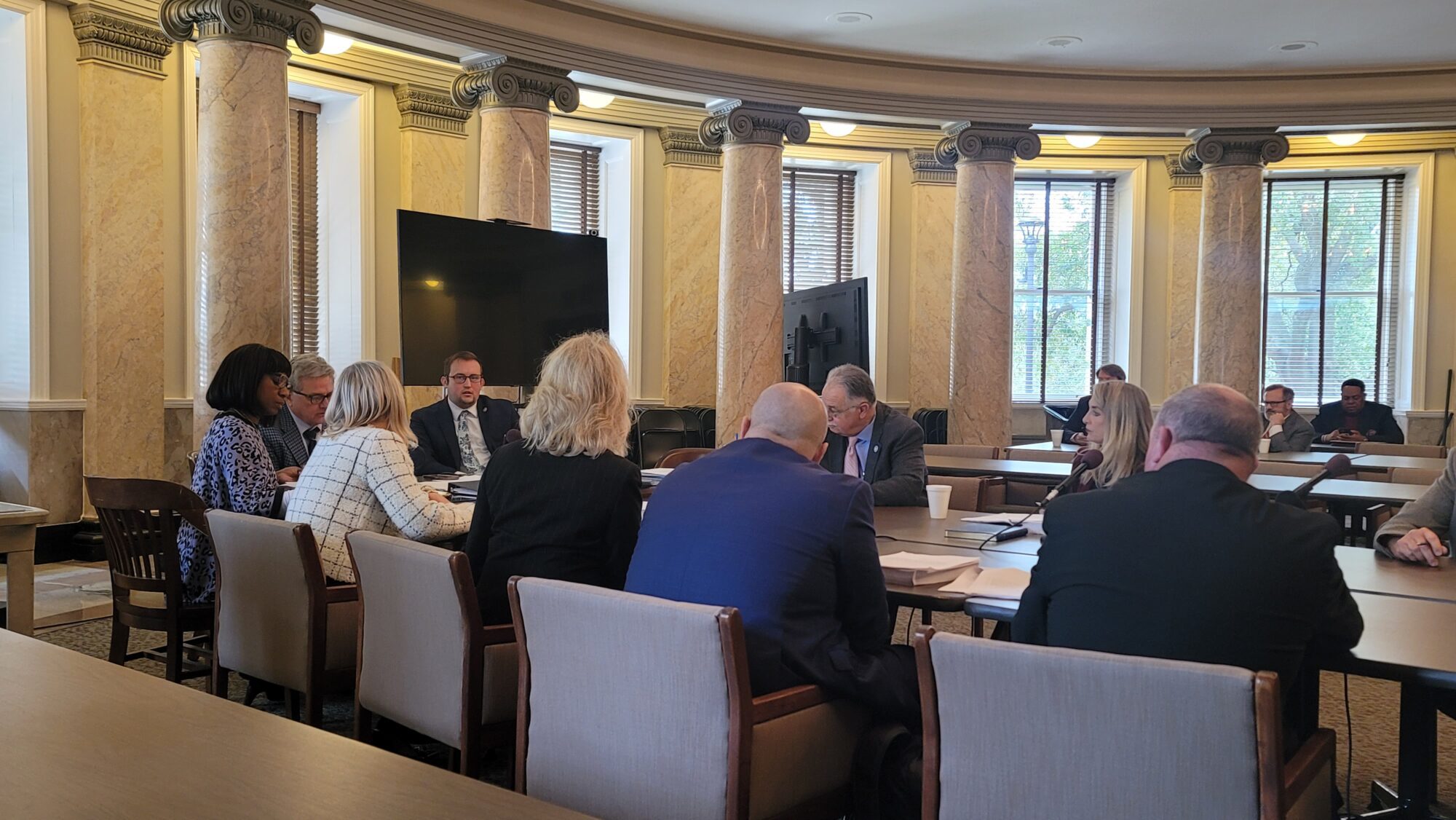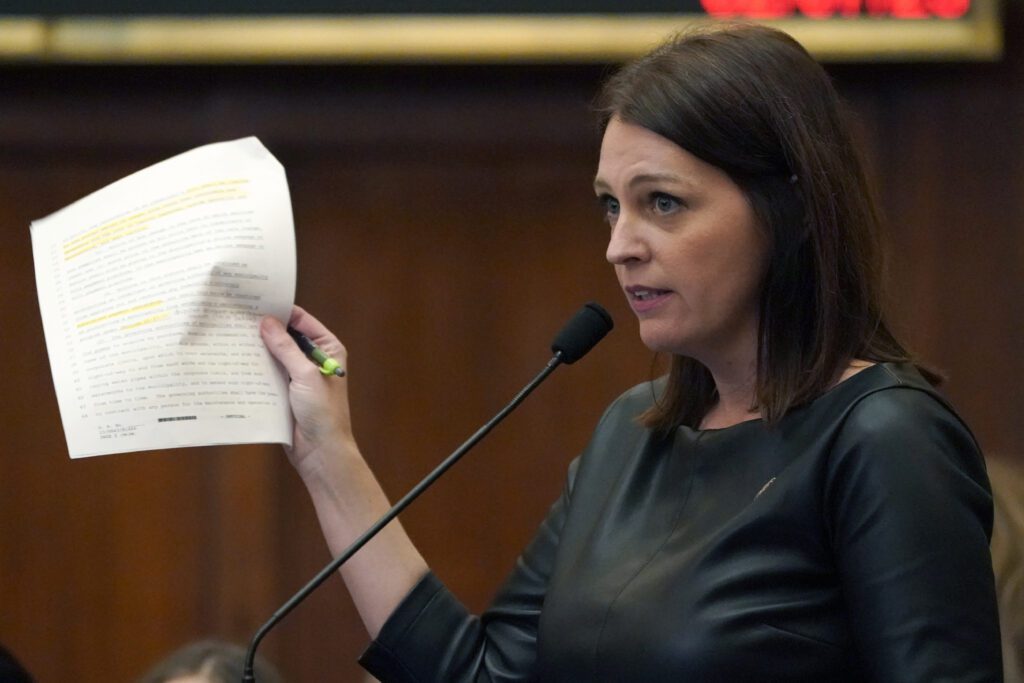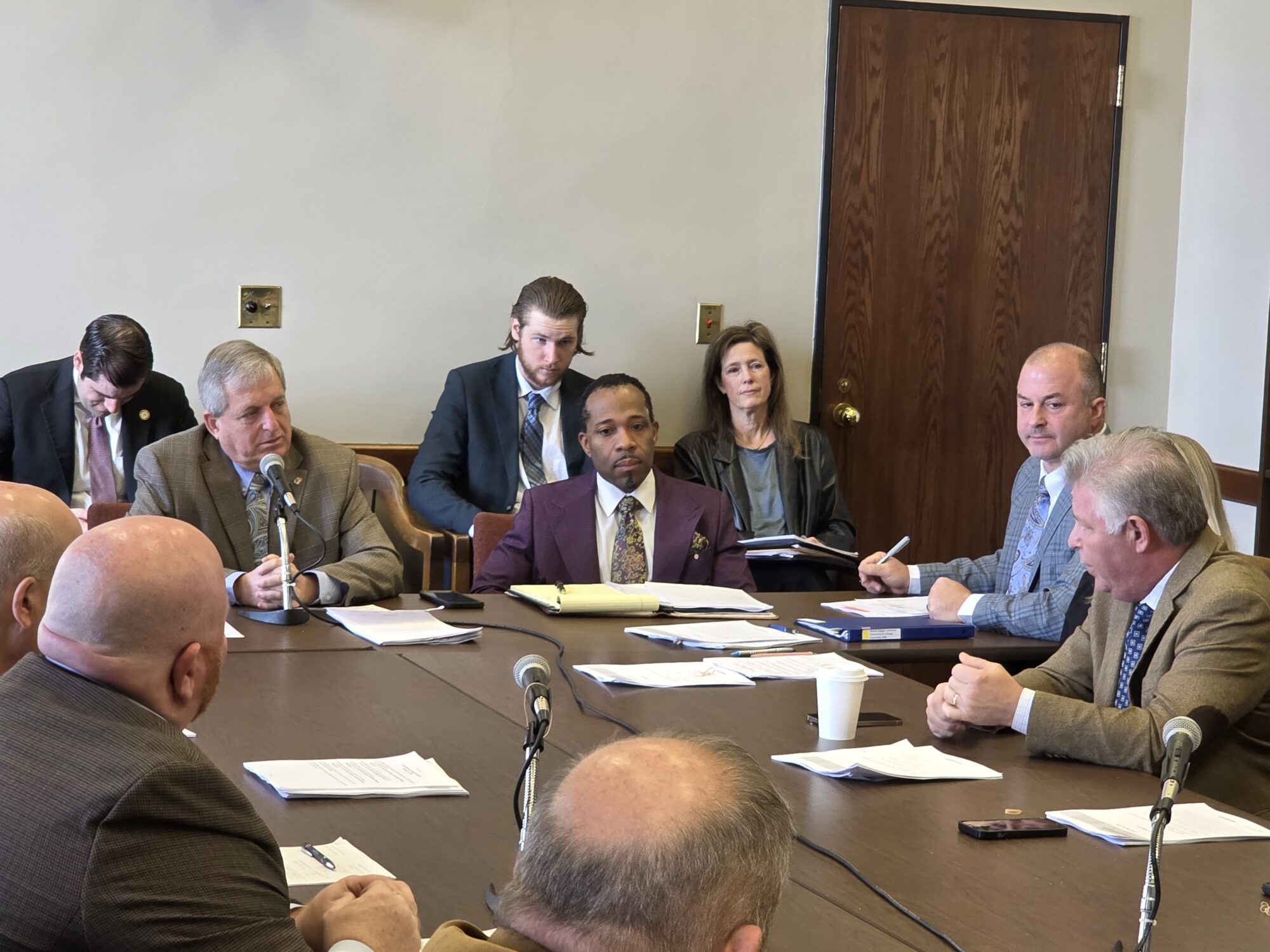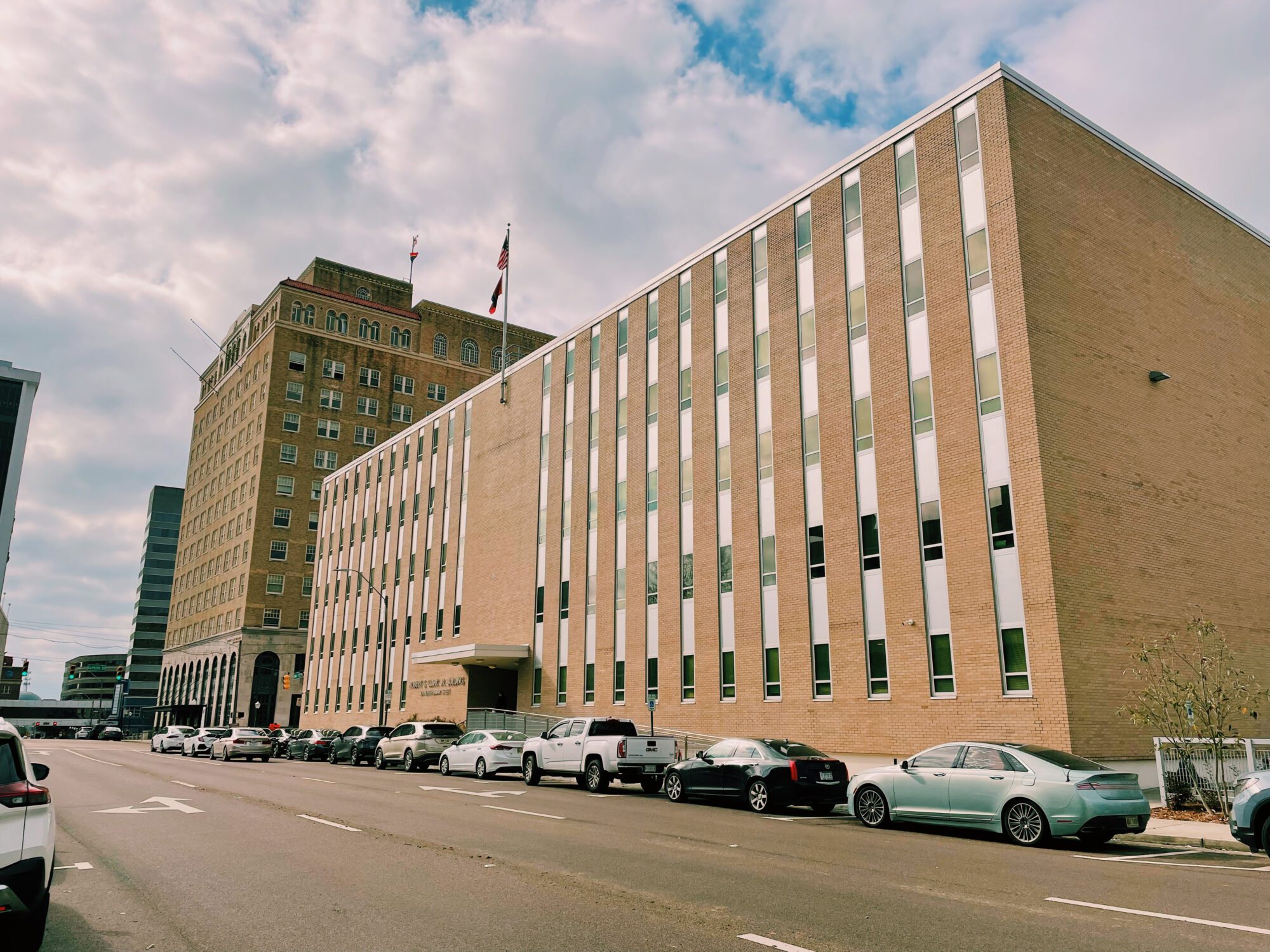
House of Representatives Judiciary B Vice Chair Jansen Owen describes HB 1303 to members of the committee during Thursday's meeting. If passed, the bill, called the Fresh Start Act, would allow felons to seek employment in various professions provided their conviction does not directly apply to that profession. (Photo by Jeremy Pittari | Magnolia Tribune)
- The bill’s author, State Rep. Yates, says making it easier for former inmates to work when possible is always a plus, especially considering the labor force participation rate in Mississippi.
Workforce development and improving the labor force participation rate in Mississippi have been top of mind during this year’s legislative session.
Currently, there are work programs in Mississippi’s prison system that provide inmates with new skills they can use upon release to find gainful employment. If the Fresh Start Act – HB 1303 – passes, it could provide another way for former inmates to seek employment, such as a barber, cosmetologist or another qualifying licensed profession.
The Fresh Start Act, authored by State Representative Shanda Yates (Ind.-HD 64), will allow former convicted felons to seek licensure in some professions to aid them in finding employment. Yates said the bill is a continuation of former State Representative Nick Bain’s work. Bain, a Republican, lost his re-election bid in 2023.

“I’m happy to keep the ball moving and see what we can get done with it. I think it’s good legislation,” Rep. Yates told Magnolia Tribune Thursday. “I think that helping people find jobs is always a good thing especially in Mississippi where we have so many people that can’t work or aren’t working right now. Making it easier for them to work when possible is always a plus in my opinion.”
State Representative Jansen Owen (R-HD 106) presented the bill during the House’s Judiciary B Committee meeting Thursday morning. It was passed out of that committee with an amendment to exclude two professions – nursing and law. The bill also made it out of the House’s Business and Commerce Committee earlier this month.
The amendment presented Thursday removed nursing because of a Nursing Compact law held with 41 other states, which allows a nurse’s Mississippi license to be valid in another state in the compact, and vice versa, making travel nursing easy to implement, Rep. Owen described. He said the Compact law mandates each state’s statute be identical to the other states in the Compact. Owen said the aim was to avoid pulling Mississippi out of the Compact.
“If we mess with the Nursing Compact law, it takes our nurses out of the ability to across state lines,” explained Rep. Owen.
Excluding the profession of law from the bill was necessary because the Supreme Court oversees bar admissions for attorneys and performs their own background checks, Owen stated.
If the bill becomes law, it will allow licensing boards for each profession to determine what felony convictions would be admissible and which ones would be excluded. Crimes directly related to a profession would be automatically excluded.
“This is just to make sure that crimes unrelated to the profession in which the license is being sought does not prevent them from being able to go to work,” Rep. Owen added.
For instance, if a person was convicted of embezzlement, that conviction would exclude them from seeking a CPA license.
“The goal is basically to do away with total blanket denial of convictions. We want to give the licensing authorities the discretion to look at which type of conviction, go behind the paperwork and see what happened,” Rep. Owen told Magnolia Tribune on Thursday. “So, if it’s a situation where the conviction is not related to the profession they’re seeking to be licensed to perform then they’ll be allowed to get their license and go to work. It’s all about helping these guys coming out of prison get into the workforce, not recidivise, and become good members of society.”
The licensing board for each profession would still determine their own licensing process and be required to publish that process, along with the list of felonies precluded from that profession.
“We are trying to take an approach to make sure that individuals who are coming out of prison can get jobs. This addresses the state’s licensure process, which right now there’s a blanket ban on anybody convicted from getting certain jobs at barber shops or as cosmetologists,” Rep. Owen told the committee. “So, this bill will give just a little bit more leeway to the licensing committee to look at case by case basis so someone with just a possession charge who wants to be barber or cosmetologist or something like that.”
The bill now awaits its place on the calendar to be considered by the full chamber.











